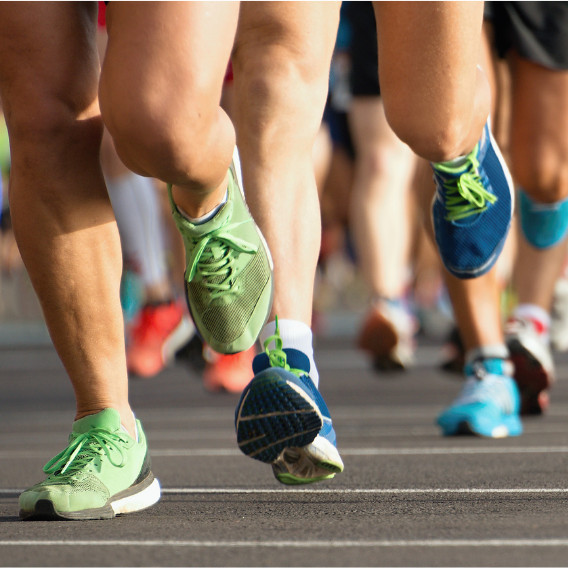Why sleep is the ultimate recovery for endurance runners
Why sleep is the ultimate recovery for endurance runners
“Come, blessed barrier between day and day, Dear mother of fresh thoughts and joyous health!”
William Wordsworth was onto something in his poem To Sleep. He lamented two sleepless nights he had suffered and begged for sleep to recover him on the third. Even as far back as the 17th century (when he penned the poem) it was common knowledge that sleep was the mother to good health and clear thinking. Today scientists believe that sleep is the ultimate recovery for endurance runners.
At Marathon Grit, we were curious about sleep and its effect on endurance running and performance. So, we set out to understand just how important sleep is and whether it should be prescribed as part of a healthy training plan.
WHY IS SLEEP IMPORTANT FOR ENDURANCE RUNNING?
According to a study published in Current Sports Medicine Reports, sleep deprived runners are more prone to injuries and cannot perform at their optimum. For endurance running, glycogen stores must be stocked to their maximum and studies have shown that many runners who are sleep deprived have depleted glycogen stores pre-race.
TRAIL RUNNING IS AMAZING. HERE’S WHY
There is a buzz in the air.
Headlights illuminate nervous faces huddled around fires-some fiddling with race packs, some stretching their calves, others just staring into the distance. The smell of coffee mixed with wintergreen sits like a thick fog between the runners.
A race organizer standing on a small platform dotted in sponsors logos describes a route that sounds impossible to any rational human being. The sun rises over the remote race village nestled in the mountains. The gun goes off. They start their watches and trot over the line…
Many people believe trail running should be renamed ‘trailing’ for it is a completely different sport from road running. Trail running uses other muscles groups and provides a different kind of workout that challenges the athlete differently. Today Marathon Grit brings you 8 reasons why trailing is amazing and why you should try it out.

Simply put, without glycogen athletes “bonk” or “hit a wall” and their bodies simply cannot go the distance. To find out more about the physiological effect running has on your system read this article: Running science-what happens to my body when I run?
We do not yet have the answers as to why, but runners that are sleep deprived are 75% more prone to injury than those that are getting enough sleep. Lack of sleep as also been linked to lowered immunity in athletes with high training volumes and these athletes are more prone to illness.
Additionally, athletes who are sleep deprived seem to feel fatigue earlier on than their well-rested competitors. Rate of perceived exertion is higher in athlete’s that are not well rested than those that are. Lastly, sleep deprivation has been linked to increased volumes of the stress hormone, cortisol.
It is therefore no wonder that the Ethiopian running team sleeps 10 hours a night and naps for an hour a day during their training camps. But why exactly is sleep vital in training?
WHY IS SLEEP VITAL IN TRAINING?
Whilst following a training program for a marathon sleep is imperative to improving fitness. According to Justin Thomson a physical therapist and sleep advocate, our bodies gain fitness not during our threshold sessions, hill sprints or weekend long run, but during the rest period that follows. In this highly informative video – Recovery and Sleep For Runners, Justin draws us a picture to help us understand why sleep when training for a marathon or ultra is worth gold.
TRAINING VOLUME AND SLEEPING WELL
When juggling work, studies, family commitments and a training schedule designed to get you as fit as possible for race day, sleep can be an elusive friend. According to Dr. Jeff Sankoff, an emergency physician and triathlon coach, athletes who train at higher intensity or at higher volumes are more likely to suffer from disrupted sleep and trouble falling asleep than those who are training at lower intensities.
Then there is also the phycological impact that competing has on stress levels. Stressing over results and goals can keep you awake at night. Often, we battle to sleep when we need it most in the weeks leading up to a big event. Additionally travelling for the event and changes in altitude can mess with our sleep routine.

HOW TO IMPROVE YOUR SLEEPING HABITS FOR OPTIMUM RUNNING PREFORMANCE
Not all of us have the luxury of 10 hours sleep a night and naps during the day are a rare occurrence in most working households. So how can you ensure that your sleep routine is at its optimum for training performance and injury prevention?
Here are 6 tips for runners to improve their sleep quality:
1. Make your bedroom a tech-free zone: Studies have shown that televisions, tablets, and phones interfere with the establishment of a relaxed state that ultimately leads to a good night’s rest. Reading, in contrast, is the ideal transition from alert wakefulness to the Land of Nod.
2. Have a set bedtime: Seeing as sleep is habitual, having a set bedtime is helpful in coaching your body clock to switch off and get some restorative rest.
3. Find your caffeine cut-off time: To avoid going to bed slightly wired and jittery, find your individual caffeine cut-off time in the day and avoid coffee, tea and caffeinated cooldrinks after this time.
4. Eat an hour or more before bedtime: Falling asleep on a full stomach can be uncomfortable. Allowing your body to partially digest your meal before bedtime will give you a more restful night.
Caroline’s Top Tip: Did you know that eating a few hours before bedtime reduces the number of calories your body will store as fat? So, make sure dinner gets served at 7pm if your bedtime is at 11pm.
5. Turn your bedroom into a pushing ZZ’s paradise: This might be common knowledge, but we want to stress it one last time. A good mattress, block out blinds for the summer months and a cool temperature (60-64° Fahrenheit) can have a profound impact on your sleep quality. As runners we are quick to buy another pair of trainers but slow to fork out for a good quality mattress, yet the mattress will probably have a greater impact on our running performance than the trainers.
6. Try a cup of warm milk before bedtime. Any snack with protein and carbohydrates can assist in finding your way to Lala-land a little quicker. Protein and carbohydrates assist with the production of the amino acid tryptophan, which increases the production of melatonin easing you into restful sleep.

We clearly need to pay more attention to sleep. Whether it is during our peak training weeks or in the week leading up to an event and then, thereafter. Sleep may be the magical elixir that we have all been seeking for improved performance, better focus and preventing injuries. Make sure you get yours.
FREE ECourse
The Training Blueprint

Your guide on how to achieve
your goals with expert advice on
how to train, injury prevention
tips, and mindset.
Recent PAbout the Authorosts

HI Gritty Runners, I’m Caroline!
I am SO excited that you’re here! I’m super passionate about helping people to run far and having lots of fun along the way. I specialize in teaching others how to have a running body and a running mind to help them go the distance. My mission is to build your resilience so that you can be marathon ready. I pool together my knowledge from sport science, physical therapy and wellness coaching to keep you running stronger for longer.







